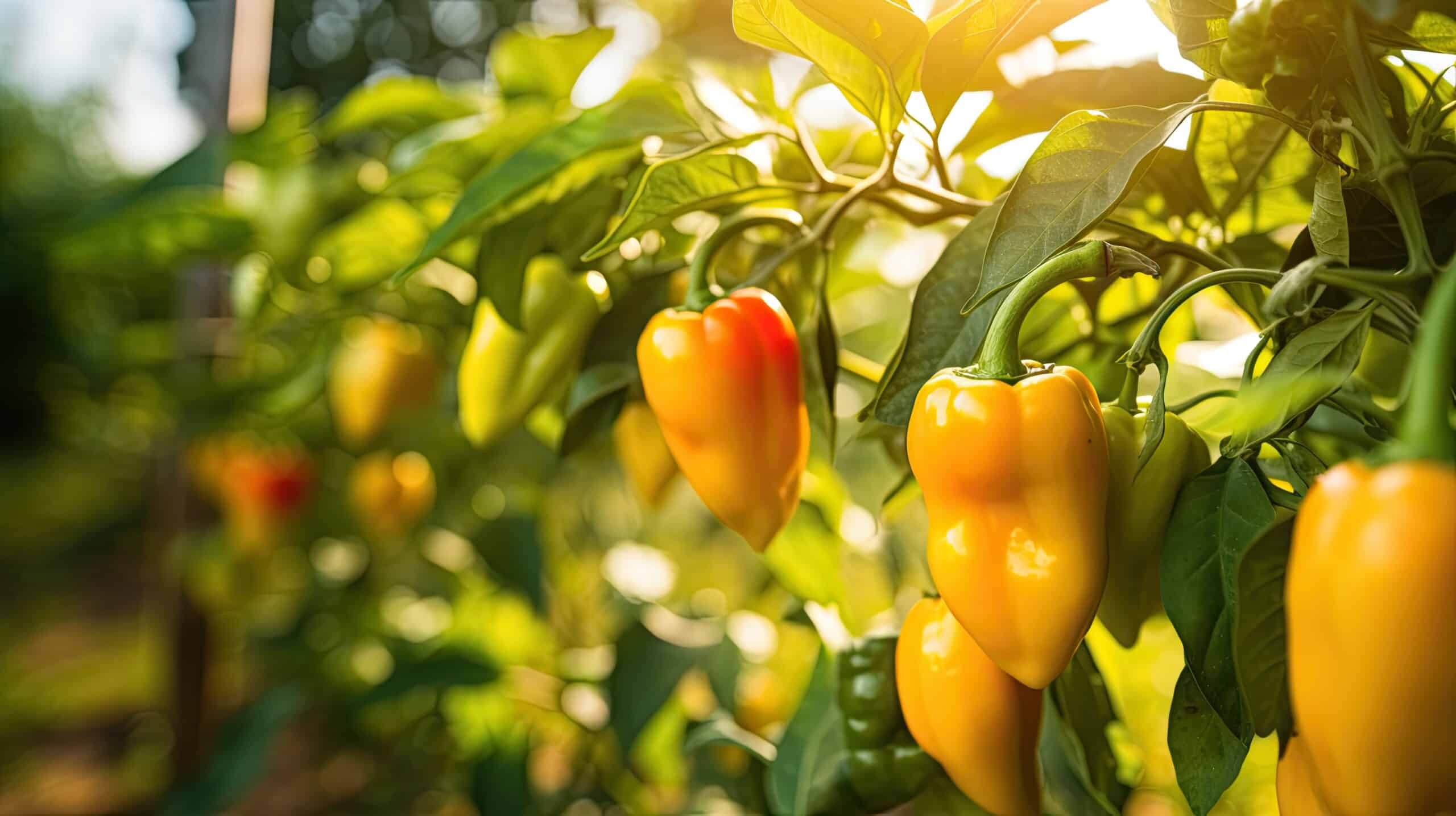What not to plant next to peppers?
Key Takeaways
- Brassicas (kale, cabbage, and broccoli) should not be planted near peppers as they release compounds that can inhibit pepper growth.
- Fennel negatively affects pepper growth and flavor due to the chemicals it produces.
- Apricot trees release a chemical called allelopathy that can inhibit the growth of pepper plants.
When it comes to planting a successful pepper garden, choosing the right companion plants can make a big difference. Companion planting involves strategically planting different species together to enhance growth, repel pests, and improve overall garden health. While some plants thrive alongside peppers, there are certain plants that should be avoided due to their negative effects on pepper growth. In this article, we will explore the plants that should not be planted next to peppers, based on information from various reliable sources.
Brassicas – Kale, Cabbage, and Broccoli
According to Martha Stewart, one plant group to avoid planting near peppers is Brassicas, which includes kale, cabbage, and broccoli. Brassicas are known to release compounds that can inhibit pepper growth. These plants belong to the same family as peppers, the nightshade family (Solanaceae), and can compete for nutrients and space in the garden.
Fennel
Fennel is another plant that should not be planted near peppers. According to The Spruce, fennel can negatively affect pepper growth and flavor. Fennel produces chemicals that can hinder the growth of neighboring plants, including peppers. It is best to keep fennel away from your pepper plants to ensure their optimal growth.
Apricot Trees
If you have apricot trees in your garden, it is advisable to avoid planting peppers nearby. According to The Spruce, apricot trees release a chemical called allelopathy, which can inhibit the growth of pepper plants. These chemicals are released through the roots, leaves, and fallen fruit of the apricot tree, creating an unfavorable environment for peppers.
Beans
Beans are not recommended to be planted next to peppers. According to The Spruce, beans and peppers have different nutritional requirements, and planting them together can result in competition for nutrients. Additionally, beans can also cast shade on pepper plants, which may negatively impact their growth.
Summary
In summary, it is best to avoid planting peppers next to brassicas like kale, cabbage, and broccoli, as well as fennel, apricot trees, and beans. These plants can either inhibit pepper growth, compete for resources, or create unfavorable conditions that can hinder the health and productivity of your pepper plants.
Related Websites:
FAQs:
Q: What is companion planting and how does it benefit vegetable growth?
Companion planting is the practice of planting certain plants together to enhance their growth and yield. It benefits vegetable growth by improving pollination, repelling pests, and enriching the soil with nutrients.
Q: What are the ideal growing conditions for peppers?
Peppers thrive in full sunlight, well-draining soil, and require regular watering. They also need proper spacing to ensure good air circulation and prevent pest infestations.
Q: What plants should I avoid planting next to peppers?
It is recommended to avoid planting nightshade family plants like tomatoes or eggplants near peppers. Alliums such as onions, garlic, or chives can also stunt pepper growth. Fennel should be avoided as well, as it can attract pests and inhibit pepper growth. Additionally, planting legumes like beans or peas near peppers may result in nutrient competition.
Q: Which plants can be beneficial companions for peppers?
Some beneficial companion plants for peppers include basil, marigold, and oregano. These plants can help repel pests and attract beneficial insects, ultimately promoting healthier growth for peppers.
Q: Why is companion planting important for successful vegetable gardening?
Companion planting is important for successful vegetable gardening as it helps optimize plant growth, prevent pest infestations, and enhance yield. By choosing the right companion plants, you can create a harmonious garden ecosystem that benefits all plants involved.






